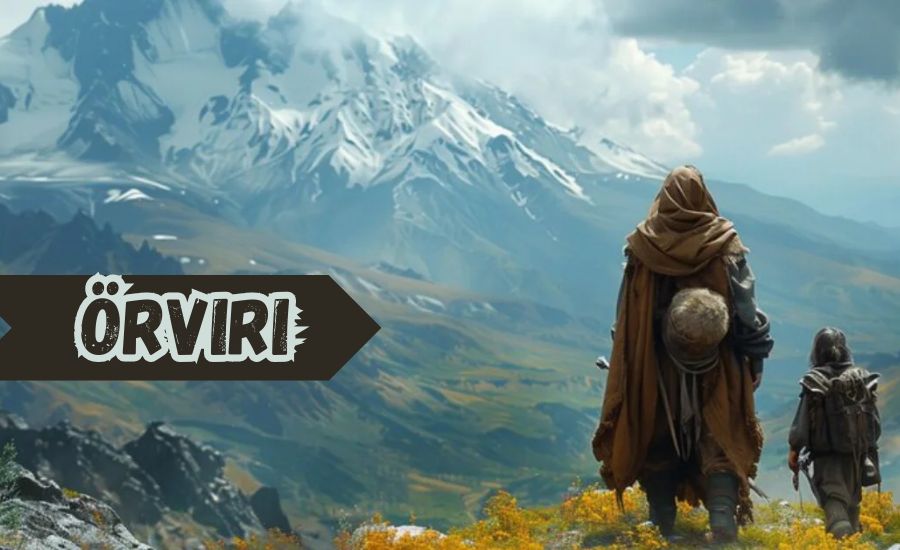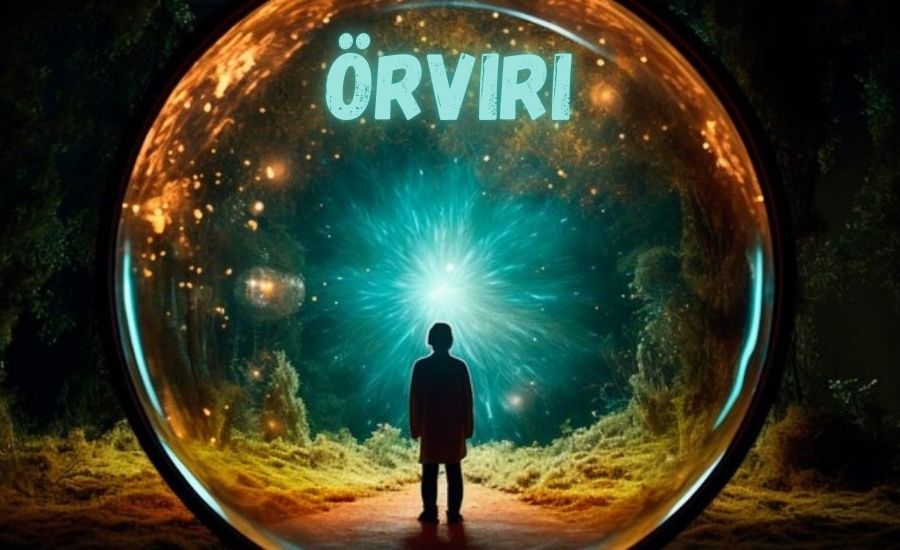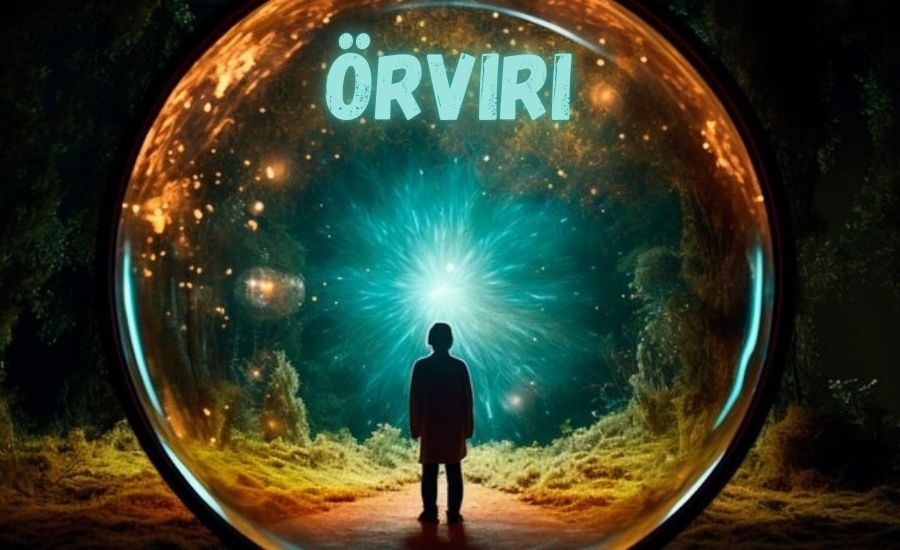Örviri: Unlocking the Mysteries of Icelandic Heritage and Nature

Welcome to USA MAGZENE, where we embark on a fascinating journey into the world of Örviri. This captivating term is steeped in Icelandic mythology, representing a deep connection to nature and the spirit of the land. In this blog post, we will explore the historical significance of Örviri, its cultural relevance today, and how it influences various aspects of life, including environmental conservation, culinary arts, and tourism. Join us as we uncover the layers of meaning behind Örviri, celebrating its role in shaping identities and promoting sustainability.
The Enigmatic Origins of Örviri
The origins of Örviri are shrouded in mystery, much like the fog that envelops the landscapes of Iceland. This term is often associated with ancient myths and legends that paint a vivid picture of beings inhabiting parallel worlds. Örviri has been depicted in various forms throughout Icelandic folklore, sometimes described as a mystical realm or a guardian spirit of the land.
Understanding Örviri requires us to delve into the stories that have shaped its identity over centuries. It is essential to explore the context in which this term emerged. Iceland’s dramatic geological features, such as its volcanoes, geysers, and glaciers, contribute to the legends surrounding Örviri. The Icelandic landscape is not just a backdrop; it is an integral part of the mythology. Each mountain, river, and valley holds a story that intertwines with the essence of Örviri.
The concept of Örviri reflects a worldview that sees nature as alive and interconnected. In many ancient cultures, including Icelandic, there exists a belief that certain places are imbued with spirits or energies that influence human lives. This belief system fosters a sense of respect and reverence for the natural world. The more we understand the origins of Örviri, the better we appreciate its significance in the contemporary landscape of Icelandic culture and identity.
Cultural Significance and Historical Roots

Throughout Icelandic history, Örviri has been more than just a word; it symbolizes a cultural identity deeply rooted in the land. Indigenous narratives often portray Örviri as a guardian spirit, offering guidance and wisdom to those who respect the natural world. These stories are passed down through generations, reflecting the values and beliefs of the Icelandic people.
Mythological Narratives of Örviri
In ancient texts, Örviri appears alongside stories of gods and heroes, weaving a rich tapestry of myth. For instance, sagas recounting the adventures of legendary figures often feature landscapes influenced by the spirit of Örviri. These narratives help individuals connect with their heritage, allowing them to see themselves as part of a larger story that spans centuries.
Many legends suggest that Örviri serves as a protector of the land, ensuring that those who honor nature are rewarded with its bounty. This perspective fosters a sense of stewardship among the community, emphasizing the importance of living harmoniously with the environment. In a world increasingly focused on technological advancement, the teachings of Örviri remind us of our roots and the wisdom of our ancestors.
Symbol of Resilience
The cultural significance of Örviri also lies in its role as a symbol of resilience. In a land that has faced harsh climates and natural disasters, the spirit of Örviri embodies the strength of the Icelandic people. Their ability to adapt and thrive in a challenging environment is reflected in the stories surrounding Örviri. These narratives inspire a sense of unity and pride, reinforcing the bond between the people and their land.
By exploring the cultural significance and historical roots of Örviri, we gain insight into the values that shape Icelandic identity. It serves as a reminder of the importance of preserving our cultural heritage and the lessons that can be learned from nature.
Örviri in Modern Environmental Ethics
In today’s world, Örviri resonates as a powerful symbol of environmental stewardship. It calls on us to honor the wisdom of indigenous communities who have long understood the delicate balance of ecosystems. The teachings of Örviri emphasize the importance of respecting the land, which is particularly relevant in an era marked by climate change and environmental degradation.
Integration of Traditional Knowledge
Modern environmental advocates often draw upon the principles of Örviri to highlight the significance of integrating traditional knowledge into conservation efforts. This approach acknowledges that indigenous practices offer valuable insights into sustainable living. The connection between Örviri and environmental ethics serves as a bridge between ancient wisdom and contemporary challenges.
- Understanding Ecosystem Interconnections:
Örviri teaches us to appreciate the interconnectedness of ecosystems. Every action we take impacts the environment, and understanding these relationships is essential for sustainable living. - Community-Led Conservation:
The principles of Örviri advocate for community-led conservation efforts. Engaging local communities in environmental stewardship ensures that their voices are heard and their knowledge is valued.
Sustainable Practices Inspired by Örviri
Organizations and initiatives inspired by Örviri focus on promoting sustainable practices that honor the land. These include:
- Restoration of Natural Habitats:
Projects aimed at restoring damaged ecosystems reflect the spirit of Örviri. By revitalizing natural habitats, we contribute to the preservation of biodiversity. - Educational Programs:
Workshops and educational programs that incorporate the teachings of Örviri help raise awareness about environmental issues. These initiatives empower individuals to become advocates for sustainability.
By embracing the principles of Örviri in modern environmental ethics, we take significant steps toward creating a sustainable future that respects both nature and culture.
The Role of Örviri in Indigenous Practices
For indigenous peoples, Örviri represents a deep connection to their ancestors and the land they inhabit. Through sacred rituals and storytelling, these communities celebrate Örviri, seeking its wisdom in navigating contemporary challenges. The practices surrounding Örviri are not merely traditions; they are a testament to resilience and a commitment to environmental justice.
Rituals and Ceremonies
Indigenous rituals often revolve around the themes of Örviri, emphasizing the importance of harmony with nature. These ceremonies may include:
- Seasonal Celebrations:
Many communities celebrate the changing seasons, acknowledging the cycles of nature. These gatherings foster a sense of community and reinforce the teachings of Örviri. - Storytelling Traditions:
Storytelling is a vital aspect of preserving the legacy of Örviri. Elders share tales that embody the spirit of Örviri, teaching younger generations about their heritage and responsibilities to the land.
Resilience and Environmental Justice
The concept of Örviri is closely tied to environmental justice. Indigenous communities often face challenges related to land rights and resource exploitation. Embracing Örviri empowers these communities to advocate for their rights and protect their cultural heritage.
- Advocacy for Land Rights:
The teachings of Örviri inspire indigenous activists to fight for land rights and sovereignty. They remind us that the land is not merely a resource but a sacred entity deserving of respect. - Restoration of Cultural Practices:
Reviving traditional practices linked to Örviri allows communities to reconnect with their heritage. This process fosters a sense of identity and belonging while reinforcing the importance of stewardship.
By recognizing the role of Örviri in indigenous practices, we gain valuable insights into the intersection of culture, identity, and environmental stewardship.
Örviri and Its Impact on Culinary Arts
The culinary landscape of Iceland is enriched by the essence of Örviri, where traditional dishes reflect a strong bond with nature. Chefs incorporate locally sourced ingredients that echo the flavors and stories of Örviri, creating a dining experience that is both nourishing and enlightening.
Culinary Traditions Rooted in Örviri
Icelandic cuisine has a rich history that draws from the land’s natural resources. The influence of Örviri is evident in the way traditional dishes are prepared and enjoyed. Some key aspects include:
- Locally Sourced Ingredients:
Chefs emphasize the use of locally sourced ingredients that celebrate the flavors of the land. This practice aligns with the teachings of Örviri, which emphasize sustainability and respect for nature. - Seasonal Cooking:
Traditional Icelandic cuisine often revolves around the changing seasons. By using seasonal ingredients, chefs honor the natural rhythms of the land, mirroring the cycles celebrated in Örviri.
Innovative Culinary Practices Inspired by Örviri
Modern chefs are increasingly inspired by the principles of Örviri, leading to innovative approaches to Icelandic cuisine. Some examples include:
- Fusion of Traditional and Contemporary Techniques:
Chefs blend traditional recipes with contemporary techniques, creating unique dishes that honor the spirit of Örviri while appealing to modern palates. - Focus on Sustainability:
Many restaurants prioritize sustainable practices, such as reducing food waste and sourcing ingredients ethically. This commitment reflects the teachings of Örviri, which emphasize living in harmony with nature.
Celebrating Culinary Heritage
The impact of Örviri on Icelandic cuisine extends beyond individual dishes; it fosters a broader appreciation for culinary heritage. Food becomes a means of storytelling, connecting people to their roots and cultural identity.
- Food Festivals:
Events celebrating Icelandic cuisine often highlight dishes inspired by Örviri, bringing communities together to share their culinary heritage. - Educational Initiatives:
Culinary schools and programs are increasingly incorporating the principles of Örviri into their curricula. By educating aspiring chefs about the cultural significance of ingredients, we promote a deeper understanding of Icelandic cuisine.
Exploring the culinary aspects of Örviri invites us to appreciate the role of food in cultural identity and environmental sustainability.
May You Like This: Ciulioneros
Örviri in Contemporary Tourism

As interest in sustainable tourism grows, Örviri serves as a guiding principle for travelers seeking authentic experiences in Iceland. Tour operators and local communities are increasingly incorporating the teachings of Örviri into their offerings, allowing visitors to connect with the land and its stories.
Eco-Tourism Initiatives Inspired by Örviri
Eco-tourism initiatives centered around Örviri prioritize sustainability and environmental responsibility. Travelers are encouraged to engage with the land in a way that honors its heritage and protects its natural beauty. Some key aspects include:
- Guided Nature Walks:
Many tour operators offer guided walks that highlight the significance of Örviri. Visitors learn about the local flora, fauna, and geology while hearing stories that connect them to the land. - Cultural Immersion Experiences:
Travelers are increasingly seeking experiences that allow them to engage with local communities. Workshops, storytelling sessions, and traditional cooking classes provide opportunities to learn about the cultural significance of Örviri.
Preservation of Natural Landscapes
Tourism inspired by Örviri also emphasizes the importance of preserving Iceland’s natural landscapes. Tour operators often collaborate with local conservation organizations to ensure that tourism activities do not harm the environment. Some examples include:
- Responsible Wildlife Viewing:
Eco-tourism initiatives promote responsible wildlife viewing practices that minimize disturbances to natural habitats. This approach aligns with the teachings of Örviri, which emphasize respect for all living beings. - Volunteering Opportunities:
Many tourists are eager to give back to the communities they visit. Volunteer programs focused on conservation efforts allow travelers to participate in activities that support local ecosystems while deepening their understanding of Örviri.
Creating Meaningful Connections
The integration of Örviri into contemporary tourism creates meaningful connections between travelers and the land. Visitors leave with a greater appreciation for Icelandic culture, heritage, and the importance of sustainable practices.
- Transformative Travel Experiences:
Engaging with the teachings of Örviri transforms travel from a mere vacation into a journey of discovery. Travelers become ambassadors for sustainability, spreading awareness of the significance of Örviri. - Building Relationships with Local Communities:
Responsible tourism fosters relationships between visitors and local communities, promoting mutual understanding and respect. By embracing the principles of Örviri, both travelers and locals benefit from shared experiences.
As we explore the impact of Örviri on contemporary tourism, we see its potential to shape a more sustainable and culturally rich travel industry.
Conclusion
In conclusion, Örviri serves as a multifaceted symbol that connects the past, present, and future. Its historical roots, cultural significance, and impact on environmental ethics reflect a profound relationship between people and the land. As we navigate the challenges of modern life, the teachings of Örviri remind us of the importance of honoring our heritage and living sustainably.
From its origins in ancient mythology to its role in contemporary practices, Örviri continues to inspire and shape the Icelandic identity. By embracing the lessons of Örviri, we can foster a deeper appreciation for the natural world, strengthen our communities, and create a more sustainable future.
FAQs
Q: What is Örviri?
A: Örviri is a term rooted in Icelandic mythology, often associated with nature spirits and the deep connection between the land and its people. It symbolizes the reverence for nature and the cultural identity of Iceland.
Q: What cultural significance does Örviri hold in Iceland?
A: Örviri embodies the Icelandic people’s relationship with their environment, representing resilience and the importance of sustainability. It is celebrated in folklore, storytelling, and traditional practices that honor the land.
Q: How does Örviri relate to environmental ethics?
A: Örviri promotes a philosophy of environmental stewardship, emphasizing respect for nature and sustainable living. It inspires modern initiatives that integrate traditional knowledge into conservation efforts.
Q: In what ways is Örviri celebrated today?
A: Today, Örviri is celebrated through cultural events, storytelling, and eco-tourism initiatives. These activities allow individuals to connect with the land and learn about its significance in Icelandic heritage.
Q: How can travelers experience Örviri in Iceland?
A: Travelers can experience Örviri by participating in guided nature walks, cultural workshops, and community-led events. These experiences promote understanding of the land’s history and the importance of sustainability.
Q: What role does Örviri play in Icelandic cuisine?
A: Örviri influences Icelandic cuisine by encouraging the use of locally sourced, seasonal ingredients. Chefs incorporate traditional recipes and practices that reflect the flavors and stories of the land.
Q: Why is Örviri important for indigenous practices?
A: For indigenous communities, Örviri represents a connection to their ancestors and a commitment to environmental justice. It guides cultural rituals and advocacy for land rights, fostering a sense of identity and belonging.
Stay in touch to get more updates on USA MAGENE







